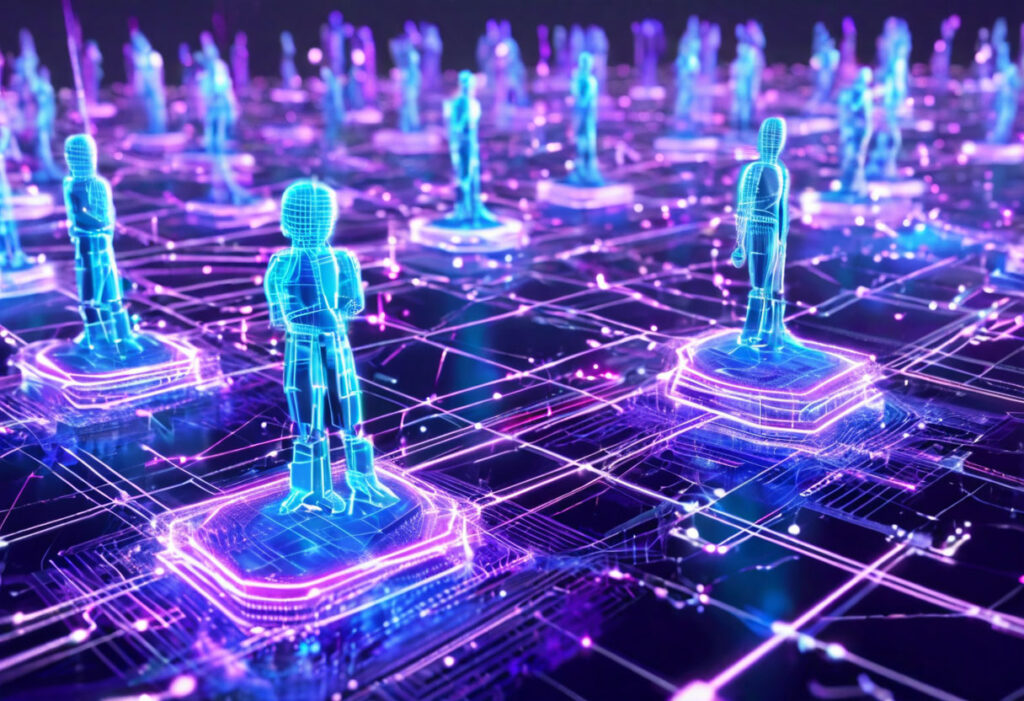The Rise of AI-Powered Governance in Blockchain Ecosystems
Artificial intelligence is merging with blockchain technology, and this combination is fundamentally changing how decentralized autonomous organizations (DAOs) handle governance. The Near Foundation is creating AI-powered ‘digital twins’ to tackle the persistent problem of low voter turnout, which often sits between 15% and 25% in DAOs. This innovation could shift governance from a manual, participation-heavy process to an automated one where AI delegates understand user preferences and cast votes on their behalf. Anyway, low participation isn’t just an inconvenience—it leads to centralization of power, poor decisions, and even governance attacks where bad actors push through harmful proposals. The Near Foundation‘s system uses personalized digital reps that learn from interactions, voting history, and social media activity. On that note, this mirrors wider trends in decentralized AI, like IoTeX‘s Real-World AI Foundry, which applies blockchain to build transparent, collaborative AI setups.
Technical Architecture of AI Delegates and Digital Twins
AI delegates rely on advanced machine learning algorithms that train on user behavior, much like how generative AI chatbots such as ChatGPT improve through repeated use. These digital twins go through thorough training that includes interviews, analysis of past votes, and monitoring chats on platforms like Telegram and Discord. This multi-angle method helps the AI grasp individual preferences and decision styles. The verifiable training approach offers cryptographic proof of how the AI was trained, easing worries about whether it aligns with user values. This transparency is key for trust, similar to how Swarm Network uses NFT licenses to check AI model training. The Near Foundation‘s focus on this verification is a smart move to keep users confident in their AI helpers.
Implementation Strategy and Phased Rollout Approach
The rollout of AI delegates is happening in careful stages to reduce risks and boost effectiveness. The Near Foundation has already put early AI tools into its main DAO, the Near Digital Collective, including Pulse—a system that monitors community feelings, sums up Discord discussions, and spots key content. This start gives useful data and feedback for later steps. You know, the first phase has AI acting mainly as advisors, offering context and helping fill out proposal templates. It’s arguably true that this low-stakes setup lets users get used to AI help while keeping final say. The next phase expands AI to represent bigger groups with similar interests, making voting more efficient by combining patterns.
Security Considerations and Risk Mitigation in AI Governance
Adding AI to governance brings serious security issues that need strong countermeasures. The Near Foundation‘s plan includes multiple safeguards, starting with verifiable training that cryptographically proves how the AI was developed. This openness helps ensure AI delegates stay true to user values and aren’t tampered with via bad training data. On that note, AI systems in blockchain face unique threats, like manipulated decisions or exploited training info. Industry reports show a 1,025% jump in AI-related attacks since 2023, with groups like Embargo linked to incidents involving $34 million. These numbers highlight why solid security is crucial for AI governance.
Industry Context and Broader AI-Blockchain Convergence
AI delegate development fits into the bigger picture of AI and blockchain coming together fast. Major investments in AI-crypto projects, such as PayPal Ventures putting $33 million into Kite AI and Swarm Network raising $13 million for decentralized AI checks, show strong market belief in this blend. This environment helps innovations like the Near Foundation‘s digital twins grow. Anyway, AI-blockchain pairing solves ongoing problems in both areas: for blockchain, AI tackles scalability, security gaps, and user experience; for AI, blockchain adds transparency, verifiability, and decentralized data that make models more reliable. This mutual benefit speeds up progress in areas from automated trading to governance.
Future Trajectory and Long-Term Implications
AI governance systems are headed toward more advanced features and wider use across blockchains. The Near Foundation envisions AI delegates moving from basic advice to full voting autonomy, a path others might follow. This aligns with industry pushes for more automation and efficiency in decentralized setups. It’s arguably true that AI governance could become standard on major platforms soon. Ideas like AI delegate CEOs or fully automated decisions, though still speculative, make sense from current tech trends. But this automation needs careful limits to avoid power grabs or losing human input.
Ethical Considerations and Human Oversight Requirements
Using AI delegates raises ethical questions about automated choices in governance. The Near Foundation insists on keeping people involved in key decisions, acknowledging these concerns. As Lane Rettig pointed out, some proposals—especially those about money or big strategy shifts—need human insight that AI can’t fully copy. You know, AI governance must weigh efficiency against possible loss of human control. Automation can fix participation woes and speed up decisions, but it might also lead to major calls being made without enough human thought. The step-by-step rollout helps by slowly adding AI features while people stay in charge.
Then you kind of set this thing loose, and it kind of acts on your behalf and votes on your behalf. It nudges you. When you know, proposals come up that are relevant to you.
Lane Rettig
When you kind of switch this agent on, it just gets to know you right? It kind of needs to learn your political preferences, the kind of projects you care about, and where you think funds should be allocated.
Lane Rettig
According to VanEck, AI agents in crypto could top 1 million by 2025, showing rapid expansion. Plus, UNCTAD predicts AI will lead the tech sector this decade, with market share possibly quadrupling in eight years. Experts note the crypto industry lost over $3.1 billion in 2025, mostly from access-control issues, stressing the need for secure AI setups.

